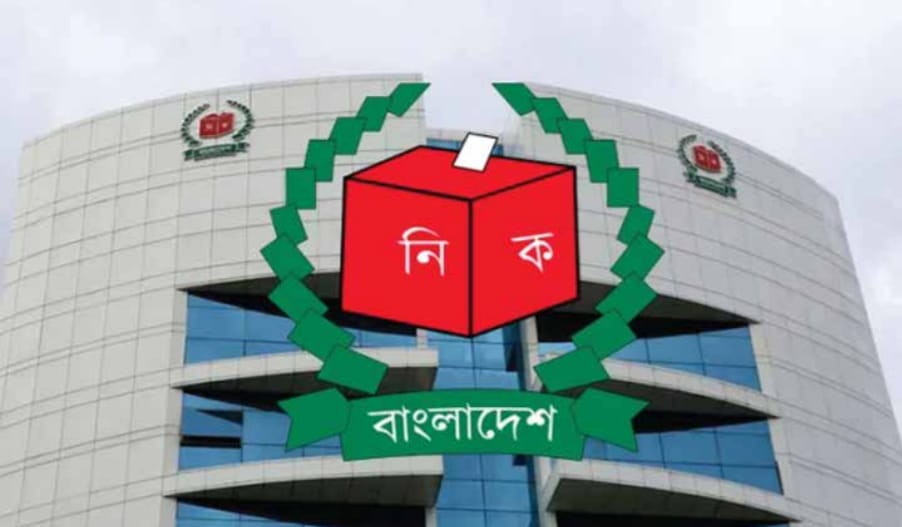In a remarkable testament to the global interest in democratic processes, Bangladesh is set to host around 230 foreign observers from 35 countries for its upcoming national election on January 7, 2024. The announcement, made by the foreign ministry’s spokesperson, Seheli Sabrin, highlights the widespread enthusiasm of the international community to monitor the electoral proceedings in Bangladesh closely.
Ten foreign observers have already received approval to monitor the polls, and the accreditation process for others is well underway. The observers hail from diverse corners of the world, representing many perspectives on governance, elections, and democratic practices.
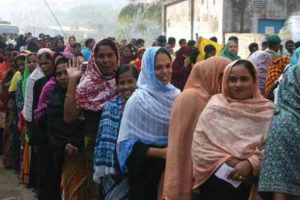
Journalists from various international media outlets have also expressed their interest in covering the polls, adding another layer of transparency to the electoral process. The accreditation process for these journalists is set to commence as soon as the Election Commission completes its scrutinizing tasks.
Seheli Sabrin, in a weekly briefing at the foreign ministry, shared that approximately 30 officials from election commissions of different countries are expected to join the ranks of observers, further underlining the international community’s commitment to ensuring fair and participatory elections in Bangladesh.
Acknowledging the importance of international scrutiny, the foreign ministry is diligently working on allocating a budget to manage the logistics and support required for the observers. The government’s proactive approach is evident in its recent initiative to establish a reception lounge at Hazrat Shahjalal International Airport, exclusively designed for the arriving election observers, delegates, and journalists.
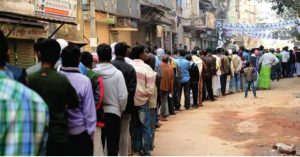
The airport reception lounge is undoubtedly symbolic but signals the government’s commitment to welcome international election observers. The meticulous arrangements, as outlined by concerned officials, include ample markers along the arrival bays leading to the reception lounge, informative packages for the delegates, and local officials ready to assist the incoming observers.
The influx of observers from 35 countries speaks volumes about the global community’s keen interest in Bangladesh’s democratic evolution. Foreign Minister Dr. AK Abdul Momen, expressing the government’s open stance, welcomed the election observers from around the world to witness and learn from the nation’s electoral process.
“We want all from the world to come and see and learn from us,” said Dr. Momen after a meeting with a team of European Union (EU) experts, emphasizing the government’s commitment to hosting a free, fair, and transparent election.
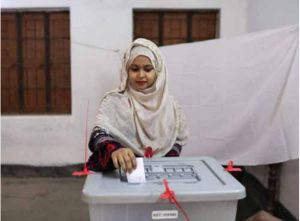
The diversity of this international delegation is striking, representing a broad spectrum of perspectives on governance and electoral practices. The confirmed participation of countries such as India, Sri Lanka, China, Russia, Japan, Uzbekistan, Mauritius, Georgia, Palestine, and The Gambia adds to the credibility of the Bangladesh government’s commitment to ensuring fair play in the election.
Moreover, organizations like the OIC, Commonwealth, and Arab Parliament, a four-member EU expert panel, and a joint team from IRI and NDI will actively monitor the election. The extensive presence of observers, with a breakdown including 50 from America, 41 from India, 50 from the USA, and others from countries like Japan, Uganda, the UK, Germany, and more, underscores the international community’s commitment to ensuring the fairness and transparency of Bangladesh’s electoral process. As the nation prepares for this momentous occasion, the eyes of the world are on Bangladesh, poised to witness a democratic triumph that transcends borders.
The current Bangladeshi government, led by the Awami League, has been unwavering in its commitment to maintaining law and order in the run-up to the January 7 national election. Faced with escalating violence between supporters of rival candidates, the government has taken decisive measures to ensure the safety of citizens and the integrity of the electoral process.
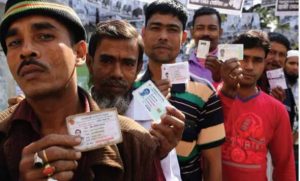
By deploying 1,151 platoons of Border Guard Bangladesh forces across the country, the government has demonstrated its proactive stance in addressing potential unrest. The paramilitary troopers are poised to remain on duty until January 10, ready to tackle any post-election violence that may arise. Intelligence agencies also, in collaboration with the public, need to gear up their efforts to prevent violence both before and after election day.
But regrettably, some members of the opposition parties, particularly the Bangladesh Nationalist Party (BNP), have been found to disrupt the peaceful electoral atmosphere. The recent incidents of electoral violence in various districts, resulting in injuries and mortal casualties, highlight the challenges faced by the authorities in maintaining stability.
Clashes between supporters of the ruling Awami League and independent candidates and incidents in the northwest Pabna district underscore the need for stringent measures to curb disruptive activities. The government’s dedication to upholding law and order starkly contrasts the disruptive agenda pursued by the opposition, as reflected in their decision to boycott the election and persistent demands for the government to step down, a demand consistently rejected by the Awami League.
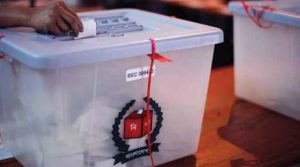 As Bangladesh anticipates the election’s outcome, the government’s efforts to ensure a peaceful and fair democratic process remain paramount. The diverse range of countries sending observers underscores the global recognition of Bangladesh’s efforts to provide a democratic process that genuinely reflects the people’s will. The forthcoming election is poised to be a landmark event, with observers playing a crucial role in validating the fairness and transparency of the entire electoral process.
As Bangladesh anticipates the election’s outcome, the government’s efforts to ensure a peaceful and fair democratic process remain paramount. The diverse range of countries sending observers underscores the global recognition of Bangladesh’s efforts to provide a democratic process that genuinely reflects the people’s will. The forthcoming election is poised to be a landmark event, with observers playing a crucial role in validating the fairness and transparency of the entire electoral process.
As we eagerly anticipate the 7th of January 2024, let us recognize the significance of these international election observers. Their presence is not just a testament to Bangladesh’s commitment to democracy but also an opportunity for the world to witness a nation’s democratic triumph unfold. The eyes of the world are on Bangladesh, ready to celebrate a democratic victory that transcends borders and stands as a beacon for nations aspiring to uphold the principles of fair and participatory governance.
Written by
Dr. Imtiaz Ahmed
Professor of International Relations University of Dhaka

